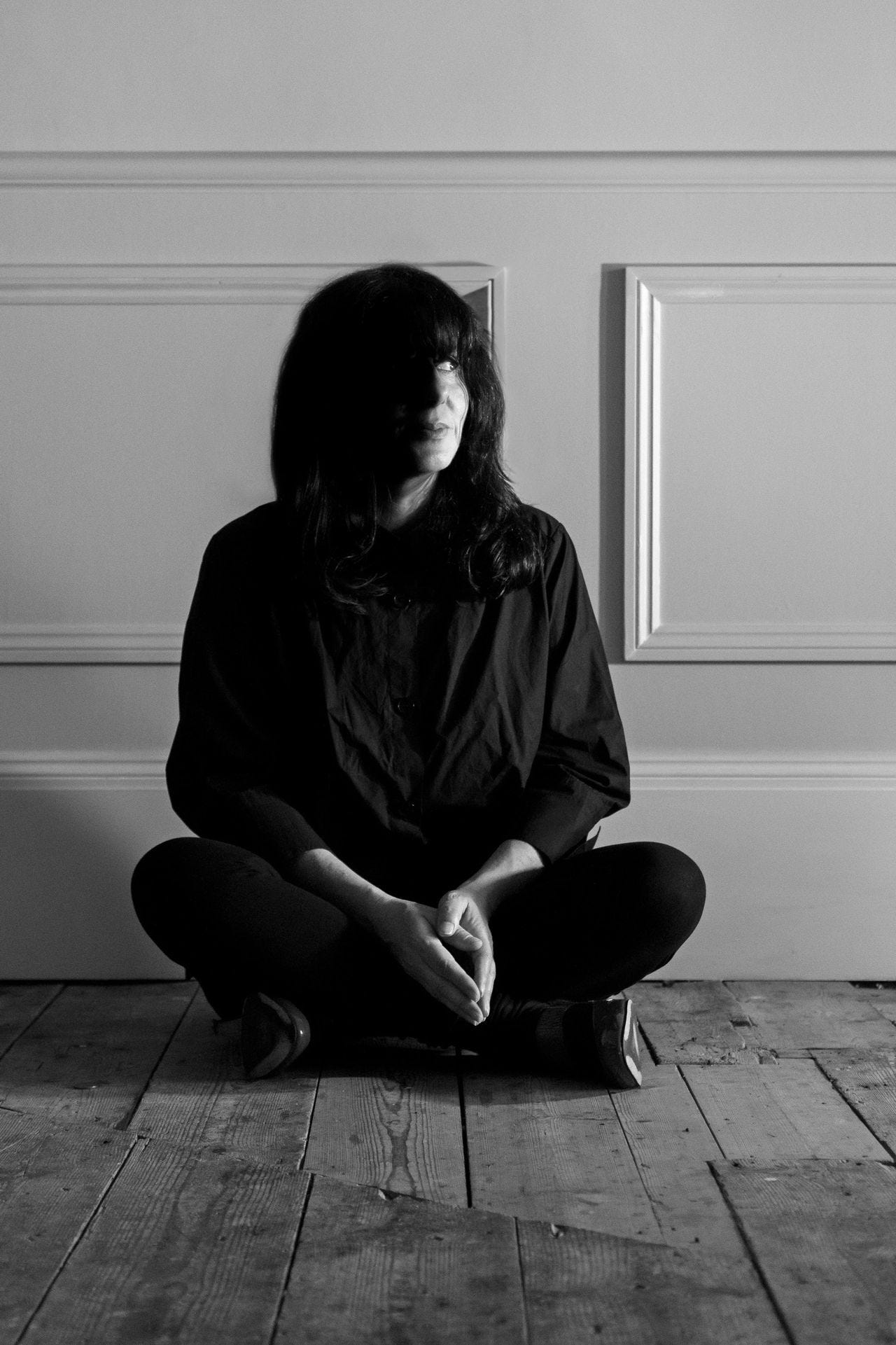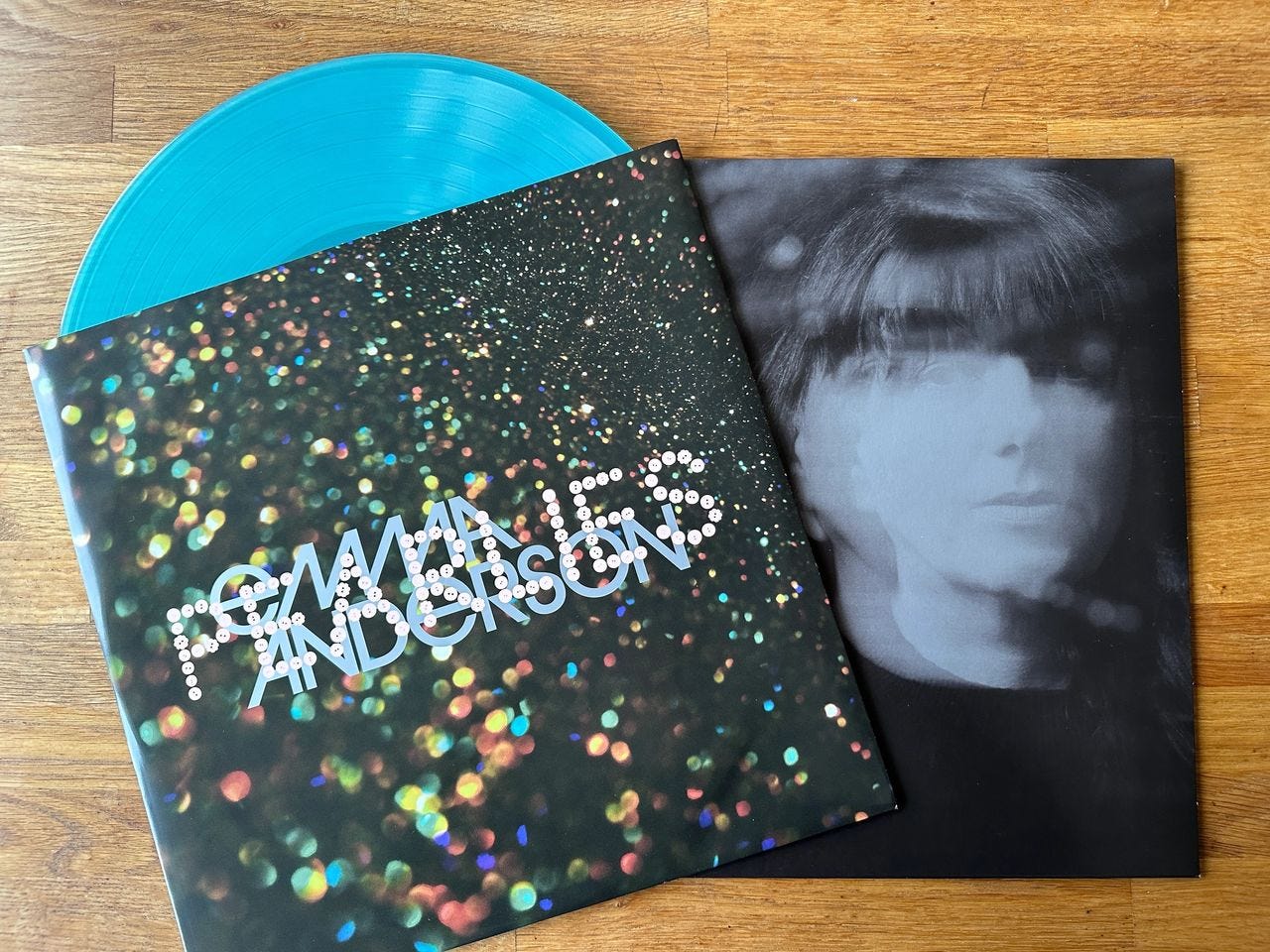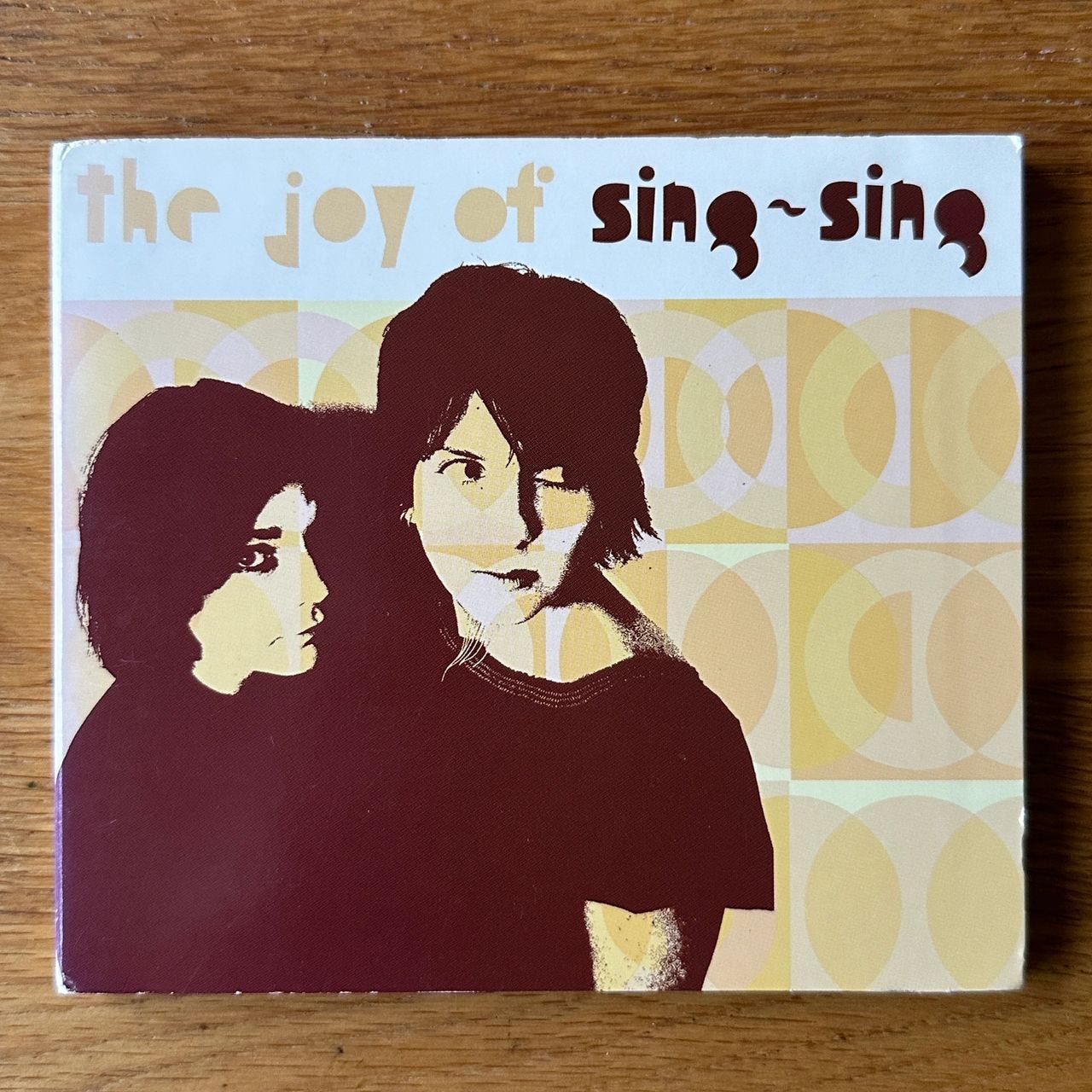Q+A with Emma Anderson
Emma Anderson's Pearlies is an album you'll find in 'best of' lists for 2023 (mine included) and gosh darn it, why wouldn't it be?! Pearlies is soft and floating yet sturdy elctronic-esque jangle pop with a slightly spooky flair here and there. Emma is a gifted songwriter and indie pop craftswoman — we already knew this — but Pearlies offers something familiar, while achieving something new. It also shares moments of introspection and moodiness without dragging you down in gloom.
I would even say it's very 'down to Earth', but perhaps this comes from the impression of Emma herself that I got from reading her exchange with Dom Gourlay for Under the Radar — grounded, honest, unapologetic, no nonsense, taking it as it comes but as you want it to be. That interview was what prompted me to ask her if she'd answer a few questions for the blank mood blog. I wanted to pick up on a few threads about women working in the music industry — and here we are.
You noted to Brooklyn Vegan that the song “Xanthe” on Pearlies could be described as a lullaby or a soundtrack to a horror movie. To me those "la la las" feel mischievously triumphant, I love the mood. You also mentioned that the song once had lyrics - any chance you’ll release those as an alternate version of the song?
Aha, yes, it did have lyrics once. The lyrics were about… songwriting. I thought it would be an interesting subject to tackle (and one close to my heart!) but even when I came round to doing a demo of the track, I had already replaced the words with the ‘la la las’.
Unfortunately (or fortunately) there is already an alternative version to this track and that appears on the flexi-disc that came with the Dinked Edition of the album. It is quite different to the Pearlies version and sounds a little like a late 70s/early 80s TV theme tune to some horror series as it’s played on keyboards and not guitars, so it’s very unlikely I will do yet another version. I might though try and write some lyrics about songwriting for a different song for the next album. I do think it’s a good topic.
Dom Gourlay of Under the Radar asked you what has changed for better (or worse) in the music industry, especially regarding attitudes and behaviours towards women. You remarked, “there’s a lot more respect for older women, and older men as well. But if I’d been someone of a similar age doing this album 30 years ago no one would have cared at all.” Why do you think people are more apt to have respect for or interest in “older” musicians now, particularly women? What or who is driving that?
Yes, I have been thinking about this. I think there are a number of reasons. I mean, when I was, say, 18, 30 years previous to that was 1955. To me, that seemed like 100 years before – to see anything on the TV was of lots black and white footage of rock and roll artists, many of whom were either dead or just playing the club type circuit and it was music that, I, myself, was not that particularly interested in. I have to add though there were many people in the 1980s who did like music from that era! However, now, 30 years ago is 1993 and there is lots of footage of that time – all in colour, looking perhaps a little dated but not too bad and I think younger people can probably relate to that time more than say people in the 1980s could to the 1950s. Also, a lot of the bands and artists of that era are still going and creating new and exciting music – either reformed (Suede and Slowdive) or never stopped in the first place (PJ Harvey and Björk) and women were more represented back then already as say songwriters and musicians and not just singers as was more the case in say the 50s, 60s and even 70s.
I do think the change wasn’t that subtle though. When I did Sing-Sing in the late 90s/early 00s, I was told (by a couple of people in the business, both men) that I was too old to be doing it because I was in my 30s, but it might have also been at that time, Lush was not a respected band at all – in fact, in the late 90s and early 00s Lush were definitely seen as uncool but that changed.
I think the main reason for all of this though is that, for all its faults, the internet has been a great leveller – people can now HEAR and see music and view past footage and make their own minds up about stuff than it being fed to them by the media and being told what is good and what isn’t.
For all the ‘the music business is inherently sexist’ – yes, of course there are still stereotypes and there is still sexism and discrimination, but I do think that we have come a long way. I said to Dom that now there are more women working in professions such as mastering and tour managing. I played a gig with the Jesus and Mary Chain last week and there was a female monitor person. In the 90s it was almost unheard of – or quite rate – to see women in those roles. I realise there is still work to be done and there is a way to go through.
My show has made a pledge to Keychange, an organisation working toward gender equality in the music industry. The pledge is to deliver gender-conscious programming, meaning I make sure that 50% of the artists featured on the show are women. I’ve noticed that it is more difficult to get in conversation with women than men about their music. I have a few theories as to why this might be and of course it’s all not so simple or black and white, but what is your take on music promotion at this moment in time? I assume there are challenges for every artist, but do you think there are any unique challenges for women?
I am not sure I totally understand the question – do you mean it’s more difficult to get access to talk to women or, when you do talk to them, they tend not to talk about music itself?
I have always been quite accessible to interview (I think!) so not sure I can answer the first part of the question. As for the second part, I seem to remember back in the 90s sometimes interviewers would ask about anything but the music, but I am not sure if that was because there were women in the band or perhaps, especially in the UK, the music press was quite tabloid and therefore slightly salacious and gossipy and they had a lot of column inches to fill. Again though, I think things have changed for the better; I certainly recently have been asked much about my actual music and its creation and not so much what I like to eat for breakfast (mainly just a cup of coffee if you are interested!).
After listening to Pearlies, I went back to your The Joy of Sing-Sing album (one I’m lucky enough to have in my stacks from 2002). It is a perfect indie pop album. I listened to it start to finish the other night and was surprised that I remember each and every song. I think this might have to do with it being an album that made it onto my first iPod and was along for the ride during a moment of changing listening behaviour. Do you write or create any differently compared to the past knowing how people “consume” and discover music now?
Ah, thank you! No, I don’t really do anything differently at all. I don’t think I do anyway! I mean with Lush, Sing-Sing and now I have always written the songs in the same way – think of a melody, add basic chords, then lyrics and then embellish. It was just in Lush there was a four-piece band to work with but with Sing-Sing and now this, it’s been me (and Lisa) sitting in front of a computer with the producer. The main difference with this album to anything I have ever done before, is that on Pearlies I wrote all the songs which was a little daunting a prospect at first, but I got there in the end, and I do like the results! That probably is quite significant, and I think this album does work as a whole. As you are suggesting though, people generally consume music in a different way these days; it’s more about individual tracks, algorithms, and playlists on streaming services, but I guess I am a little old-fashioned and still like to think of an album as a body of work. I am probably a bit too set in my ways to change my mindset, but if a song is good, it’s good, right? It can work as part of an album or on its own. And vinyl has really grown in popularity in recent years so with that in mind, you need to have albums that flow from start to finish as you don’t want to be picking up the needle all the time!
What are you listening to as 2023 comes to a close?
Of records that were released this year, I love the deary EP and also the Mary Lattimore album Goodbye, Hotel Arkada. The Emma Tricca album Aspirin Sun is good and there is a local Hastings/St Leonards (where I live) band Aircooled which I really like. Justin Welch, who was in Elastica and part of the Lush reunion, is the drummer and they had an EP out this year called St Leopards which is worth checking out.
What do you look forward to in 2024?
I am going to be putting out an EP with some new and reworked tracks. I am also looking at playing live, but that’s not 100% yet as there are a few issues to iron out on that front. Apart from that – let’s wait and see what the year brings!
Thank you to Emma for taking the time for these questions and for the wonderful album Pearlies. On Mary Lattimore... that latest album is *swoon*.
Also, thanks to Nat and the other amazing people behind all that gets released on Sonic Cathedral.



